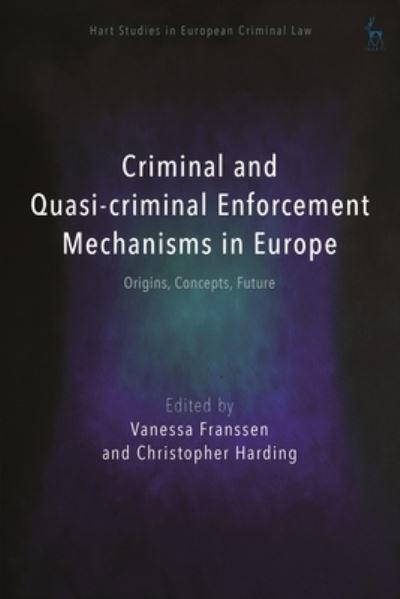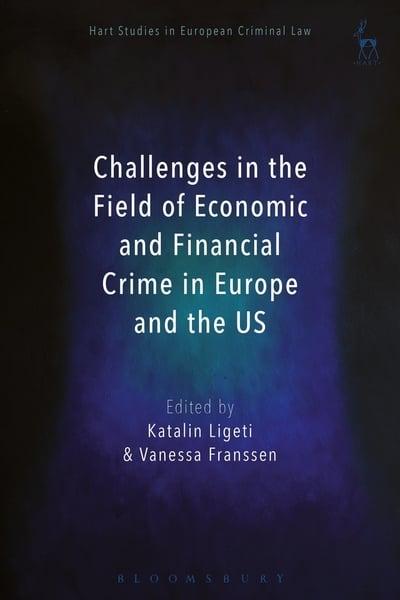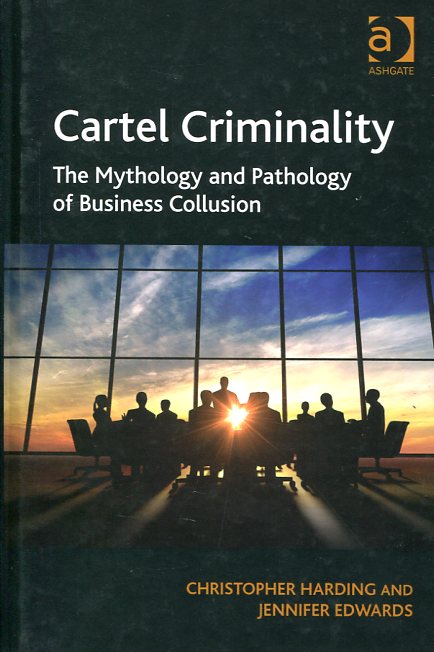Criminal and quasi-criminal enforcement mechanisms in Europe
origins, concepts, future
- ISBN: 9781509932863
- Editorial: Hart Publishing
- Fecha de la edición: 2022
- Lugar de la edición: Oxford. Reino Unido
- Colección: Hart Studies in European Criminal Law
- Encuadernación: Cartoné
- Medidas: 24 cm
- Nº Pág.: 440
- Idiomas: Inglés

This book looks at the interplay between criminal and other branches of public law pursuing similar objectives (referred to as 'quasi-criminal law'). The need for clarifying the concepts and the interlink between criminal and quasi-criminal enforcement is a topic attracting a lot of discussion and debate both in academia and practice across Europe (and beyond). This volume adds to this debate by bringing to light the substantive and procedural problems stemming from the current parallel or dual use of the different enforcement systems. The collection draws on expertise from academia, practice and policy; its high-quality analysis will appeal to scholars, practitioners and policymakers alike.
Introduction: Criminal versus Quasi-criminal Enforcement – Setting the Scene
Vanessa Franssen, University of Liège, Belgium and Christopher Harding, Aberystwyth University, UK
PART I
THE ORIGINS OF QUASI-CRIMINAL ENFORCEMENT MECHANISMS: A COMPARATIVE JOURNEY THROUGH EUROPE
1. The Origin and Development of Quasi-criminal Enforcement Mechanisms in Europe: Nordic Perspective
Raimo Lahti, University of Helsinki, Finland
2. Swiss Peculiarities of the Enforcement Mechanisms in Core, Secondary and Administrative Criminal Law
Nadine Zurkinden, University of Zürich, Switzerland
3. Quasi-criminal Enforcement Mechanisms in Germany: Past and Present
Dominik Brodowski, Saarland University, Germany
4. Quasi-criminal Sanctions in Central Europe – Their Origins and Evolution
Anna Blachnio-Parzych, Kozminski University, Poland
5. The Interplay between Criminal and Quasi-criminal Enforcement Mechanisms in the UK Context Explored through the Prism of 'Market Abuse': Current Approaches and Historical Perspectives
Sarah Wilson, University of York, UK and Gary Wilson, Nottingham Trent University, UK
PART II
CRIMINAL, CIVIL, ADMINISTRATIVE … WHAT'S IN A NAME? DISENTANGLING CONCEPTS, SELECTED TOPICS
A. General Part of Criminal Law
6. Quasi-criminal Enforcement in Criminal Law and Penal Theory: What Would Herbert Packer Say?
Christopher Harding, Aberystwyth University, UK
7. Four Dimensions of Nulla Poena Sine Culpa: The Principle of Individual Culpability in Contexts of Criminal and Quasi-criminal Law Enforcement in Europe
Ferry de Jong, Utrecht University, Netherlands
8. Non-conviction Based Confiscation: Moving the Confiscation of Criminal Proceeds from the Criminal to the 'Civil' Sphere: Benefits, Issues and Two Procedural Aspects
Johan Boucht, University of, Norway
B. Special Part of Criminal Law
9. 'Crimmigration' and Human Rights: Immigration Detention at the European Court of Human Rights
Maria Pichou, Leiden University College, Netherlands
10. Cartel Offences: Quasi-criminal Enforcement for Criminal Behaviour?
Sophie De Sanctis, University of Luxembourg
11. Protection of Procedural Rights in Administrative and Criminal Proceedings: The Case of the Privilege against Self-incrimination in Belgian Customs Law
Ana Laura Claes, University of Liège, Belgium and Marie Horseele, KU Leuven, Belgium
PART III
TOWARD A MORE COHERENT TERMINOLOGICAL FRAMEWORK IN EUROPE
12. Two Forms of Smudge: An ECtHR Perspective on the Blurring of Boundaries between Criminal and Administrative Law
Katja Šugman Stubbs, University of Ljubljana, Slovenia
13. The EU Legislature's Balancing Exercise between Practical Concerns and Conceptual Divisions
Tamás Lukácsi, European Parliament
14. Criminal and Quasi-criminal Enforcement Mechanisms: Proposal for a More Coherent European Approach
Christopher Harding, Aberystwyth University, UK and Vanessa Franssen, University of Liège, Belgium











